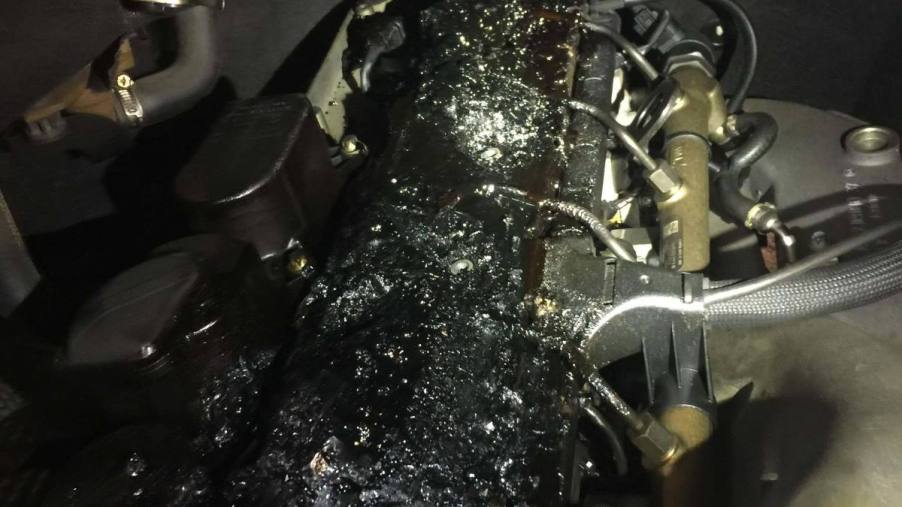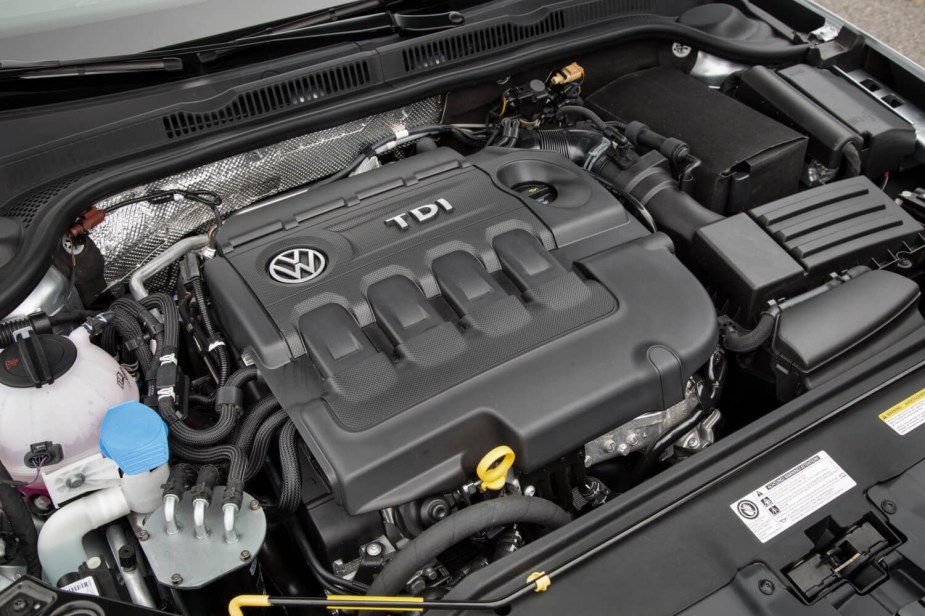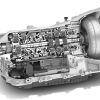
What Is ‘Black Death’ in Diesel Engines?
Diesel engines can be a mystery for those that have only owned gasoline-powered vehicles. And while a leaking fuel injector in a gas car has a low probability of total engine failure, it can be a death knell for a diesel engine. It’s a process called “Black Death” and it can take a diesel engine that is otherwise fine and destroy it in short order.
The black death of fuel injectors in a diesel engine
The process of ‘black death’ for a diesel engine starts innocuously enough, with a leaking fuel injector. Because modern diesel engines use direct injection, fuel is sprayed directly into the combustion chamber. In addition, diesel engines have high-pressure fuel pumps, which puts a great deal of stress on the injector and its seals.
Over time, the seal between the injector and the combustion chamber can weaken for two reasons. The first is the difference in materials. Injector o-rings are made of copper, while the injector seat is often made from iron or aluminum. These materials react to heat differently, and this can compromise the seal.
Furthermore, carbon buildup can work its way into the injector seat and cause problems. Combined, these issues make it easy for high-pressure fuel and exhaust gases to blow by the injectors, causing black death in your diesel engine.
When this happens, diesel fuel leaks past the injector seal and into the engine. Over time, this causes oil inside the engine to become thinner. As a result, the oil is less able to properly protect engine parts, leading to internal damage.
When left unchecked, diesel black death can destroy the piston rings and cylinder walls, causing a complete diesel engine failure in the long term. It can also cause a runaway in turbocharged engines, which results in even more catastrophe.
How to spot black death in your diesel engine
Spotting ‘black death’ in your diesel engine is usually an easy task. Simply look at the engine near the fuel injectors and you’ll see black sludge leaking up from the seals. However, there are signs to look for before it gets to this point.
If you often smell unburned diesel fuel, that is a sign that you have a compromised fuel injector that leads to black death. Other signs include rough starting, an erratic idle, and poor fuel economy. You may also have an oil leak, as thinner oil gets past seals and runs out of the engine. In any case, all of these symptoms are cause for concern, and you should take your diesel to a mechanic ASAP.
What is turbo runaway?

While ‘black death’ isn’t the only reason for a diesel runaway, it can directly contribute to the problem. Oil thinned by diesel fuel can seep past the turbo seals and into the combustion chamber. Technically speaking, diesel engines don’t need fuel from the injectors to run. They can run on nearly any oil at the right temperature and pressure.
When oil runs past the turbo seals and spews into the engine, the result can be a catastrophic runaway. Even with the key turned off, the engine continues running on the oil that’s slipped past this seal. Beyond that, there is no throttle control in this scenario, so the engine will continue to rev until it blows itself apart.
Failsafes like an anti-shudder valve can help prevent this by closing off airflow when the ignition is turned off. But if the ASV should fail or it is an older engine without one, the engine will run out of control until it ultimately fails.
What is the best cleaner for Black Death?
Once you’ve found black death and ordered the new injectors for your diesel engine, it’s time to clean things up. Throttle body cleaner is a good place to start, as it is designed to break down carbon deposits. You can physically chip away at the carbon buildup, but there is a risk of damaging engine components. Instead, a slow process of applying heavy duty carbon cleaners, dwell time, and high-pressure air will help remove diesel black death and give your engine a fresh start.
Preventing black death in a diesel engine

The best way to prevent black death in a diesel engine is with regular maintenance, says DieselIQ. Change the oil on time and keep up with fuel filter changes to maintain the health of the fuel system. Furthermore, using diesel treatment can improve lubricity and extend the life of the fuel injectors.



